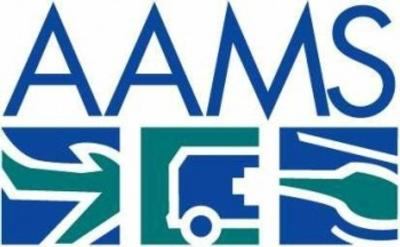Thu, Nov 18, 2021
Say Rules Ignore Significant AirMed Variables
The Association of Air Medical Services (AAMS) has filed suit in federal court challenging interim final regulations of the No Surprises Act. They believe that aspects of the implementation of the Act as they currently stand have left them unfairly vulnerable in comparison to other entities in the insurance ecosystem, owing to the special factors air ambulance service involves.

They state that they continue to support the aims of the Act, including the removal of patients from the middle of billing disputes between air ambulance providers and their patients' insurers. The point of dispute lies in the dispute resolution process, a tool meant to open negotiation between providers and insurers, where both would make their case for payment before an independent entity based on statutory factors. When the act was passed, Congress reportedly intended that no single statutory factor received special weighting in the process.
The interim regulations issued however, ignore Congressional intent, says the AAMS. They focus instead on one factor, the Qualified Payment Amount, or the insurer's median in-network rate for only a subset of their contracts for a given service in each area. The process ignores many factors inherent to air medical service, like aircraft type, the quality of services provided en route, and the acuity of the patient, that must be considered going forward to ensure the sustainability of the industry.

"Air Medical Services transport the sickest, most severely injured patients in our healthcare system - we fully support protecting those patients from these payment disputes and worked with Members of Congress and our larger healthcare community partners to ensure that happens,” said Cameron Curtis (pictured), AAMS President and CEO. “However, the fair and transparent process that we all supported is not the process being implemented. Instead, we are faced with a scenario in which a patient is in an emergency, is transported by a helicopter at the request of a trained first responder or qualified physician, and that patient’s insurer gets to unilaterally determine the amount they pay. This will have disastrous consequences for access to emergency air ambulance services.”
AAMS hopes their litigation will help revise these flaws in the interim regulations, return to the original intent of Congress, and protect the foundations of aerial medicine. "The intent of this law is clear," said Curtis. "And AAMS plans to fight for its members and their patients to ensure the sustainability of this necessary service."
More News
Aero Linx: American Aviation Historical Society AAHS is dedicated to the preservation and dissemination of the rich heritage of American aviation. Our purpose is to collect, preser>[...]
CrewMember (UAS) A person assigned to perform an operational duty. A UAS crewmember includes the remote pilot in command, the person manipulating the controls, and visual observers>[...]
Immediately After The Right Main Tire Contacted The Runway Surface, The Right Main Landing Gear Failed On October 31, 2025, at about 1227 Pacific daylight time, a Maule M-7-235A, N>[...]
Also: IAE Acquires Diamond Trainers, Army Drones, FedEx Pilots Warning, DA62 MPP To Dresden Tech Uni The danger to the flight training industry and our future pilots is clear. Dona>[...]
"On December 3, 2025, at approximately 10:45 a.m., a Thunderbird pilot ejected safely from a F-16C Fighting Falcon aircraft during a training mission over controlled airspace in Ca>[...]
 ANN's Daily Aero-Linx (12.03.25)
ANN's Daily Aero-Linx (12.03.25) ANN's Daily Aero-Term (12.03.25): CrewMember (UAS)
ANN's Daily Aero-Term (12.03.25): CrewMember (UAS) NTSB Prelim: Maule M-7-235A
NTSB Prelim: Maule M-7-235A Airborne-Flight Training 12.04.25: Ldg Fee Danger, Av Mental Health, PC-7 MKX
Airborne-Flight Training 12.04.25: Ldg Fee Danger, Av Mental Health, PC-7 MKX Aero-News: Quote of the Day (12.04.25)
Aero-News: Quote of the Day (12.04.25)




